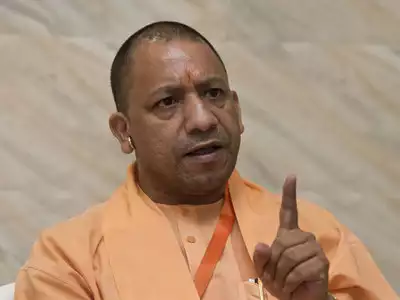Lucknow: The Uttar Pradesh government, under Chief Minister Yogi Adityanath, has taken a resolute stand against corruption, suspending IAS officer Abhishek Prakash for allegedly demanding a commission from a businessman. This latest action brings the total number of Indian Administrative Service (IAS) officers suspended for graft-related charges during Adityanath’s tenure to 12, underscoring the state’s zero-tolerance policy toward malfeasance. A vigilance probe has been ordered against Prakash, signaling the government’s intent to thoroughly investigate the allegations and set a precedent for accountability.
A Stringent Crackdown on Corruption
Abhishek Prakash’s suspension marks the latest chapter in the Yogi Adityanath administration’s unrelenting campaign against corruption within the bureaucracy. Since taking office, Adityanath has overseen the suspension of 11 other IAS officers across his first and second terms, reflecting a broader effort to cleanse the administrative machinery of unethical practices. While several of these officers have been reinstated following investigations, the government’s swift actions have sent a clear message: no one is above the law. The allegations against Prakash, which involve soliciting a commission from a businessman, have prompted not only his suspension but also a detailed vigilance inquiry.
This probe, ordered at the direction of the Chief Minister, aims to uncover the extent of the officer’s alleged misconduct and determine whether systemic issues within the administration enabled such behavior. The move has been widely seen as a reaffirmation of Adityanath’s commitment to rooting out corruption, a cornerstone of his governance agenda.
Empanelment for Speakers, Trainers, and Cyber Security Experts Opens at Future Crime Research Foundation
A Roll Call of Suspended Officers
The list of IAS officers suspended under Adityanath’s administration spans a range of allegations, from financial irregularities to abuse of power. Among them are:
1. Ghanashyam Singh, a 2014-batch officer, who was suspended on November 13, 2024, for delaying land measurement processes in Lakhimpur Kheri, a case that drew significant local ire.
2. Devi Sharan Upadhyay, a 2012-batch officer, faced suspension in July 2024 for arbitrarily reinstating leases for 35 plots in Aligarh while serving as a judicial member of the Revenue Board.
3. T.K. Shibu, who was suspended on March 31, 2022, while serving as the District Magistrate of Sonbhadra.
4. Sunil Kumar Verma, who faced action for alleged corruption and misuse of authority as the District Magistrate of Auraiya.
5. Devendra Kumar Pandey, a 2011-batch officer, was suspended during his tenure as Unnao’s District Magistrate for financial irregularities in procurement within the Basic Education Department.
6. Amar Nath Upadhyay, also from the 2011 batch, was suspended as Maharajganj’s District Magistrate for alleged mismanagement of funds allocated to cow protection centers.
7. Kumar Prashant, a 2010-batch officer suspended on June 7, 2018, as Fatehpur’s District Magistrate for irregularities in government wheat procurement,
8. Jitendra Bahadur Singh, who faced suspension in June 2018 as Gonda’s District Magistrate for similar charges related to government grain mismanagement.
9.Kedar Nath Singh was suspended while serving in the Tourism Department,
10. Sharda Singh faced action as Consolidation Commissioner for allegedly failing to adhere to OBC recruitment quotas.
A Broader Push for Accountability
The suspensions reflect a broader push by the Adityanath administration to instill discipline and integrity within the state’s bureaucracy. While some officers have been reinstated after investigations cleared them of wrongdoing, the government’s willingness to act swiftly on corruption complaints has been a defining feature of its governance model. This approach has not only aimed to deter malfeasance but also to restore public trust in an administrative system often criticized for inefficiency and graft.
Now Open: Pan-India Registration for Scam Reporters & Fraud Investigators!
For Abhishek Prakash, the road ahead remains uncertain as the vigilance probe unfolds. The outcome of this investigation could set a precedent for how the government handles similar cases in the future, particularly as it seeks to balance punitive measures with due process. As Uttar Pradesh continues its battle against corruption, the suspensions serve as a stark reminder of the high standards expected of those in public office—and the consequences of failing to meet them.
A Governance Model Under Scrutiny
Adityanath’s zero-tolerance policy has garnered both praise and scrutiny. Supporters argue that it has instilled a sense of accountability among bureaucrats, fostering a cleaner administration.
Critics, however, caution that the rapid pace of suspensions risks creating a climate of fear, potentially stifling initiative among officers. As the state navigates this delicate balance, the focus remains on ensuring that investigations are fair, transparent, and free from political influence, a challenge that will define the legacy of Adityanath’s anti-corruption crusade.


